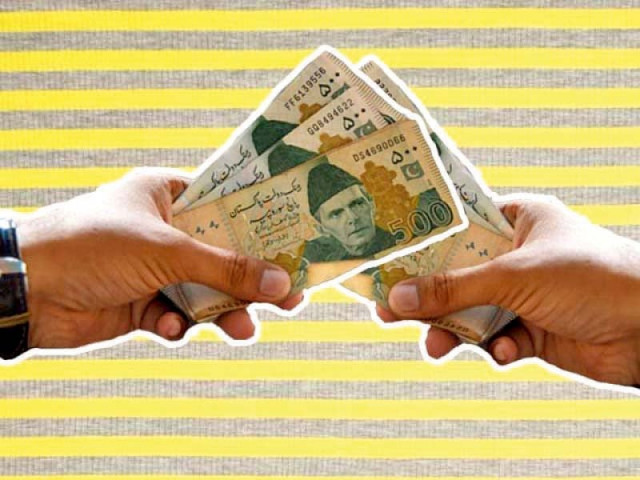Will rupee at 200 solve our problems?
Despite currency recovery, investor confidence seems to be ebbing

There is a lot of chatter nowadays since Ishaq Dar’s reincarnation as the finance minister. The focus is back on the rupee’s outlook. Dar seems to wield material influence in the financial markets as the rupee gained 8% from Rs240 to Rs219sh against the US dollar.
To be fair, the decline from Rs170 to Rs240 was nothing short of a rout and some semblance of recovery was warranted. Sadly, the predecessor couldn’t witness it under his ministry despite taking the brunt of tough decisions.
In his interviews, the finance czar doesn’t shy away from quoting the rupee’s eventual destination of Rs200 and the prime minister is also asking the nation to pray that the rupee heads to Rs100.
Policymakers need to devise a holistic view whether a mild currency appreciation will solve the country’s problems or not. Clearly, there is a lot to be done.
Despite the improvement in trade deficit number, moderating energy prices and rupee recovery, investor confidence seems to be ebbing.
The litmus test of foreign investors’ confidence or the country’s economic wellbeing is the return on international bonds. At half the value of the issued amount, the likelihood of Pakistan’s default is yet to improve.
Hence, the credit watchdogs, such as Moody’s, are downgrading the ratings. Without engaging in a public spat for a befitting response, the policymakers must clearly align with the global lenders, primarily the IMF, for a debt-reduction strategy.
Pleading for mercy under the garb of floods is a stop-gap solution. Rest assured; the economic uncertainty is going to put more people into poverty in the medium term than the current devastating floods.
There are sceptics warning that the next dip from the current lows is going to be a credit default scenario. Nonetheless, quick geopolitical realignment with the lenders, trading partners and spheres of influence would buy us time to fix the house again.
The damage is so deep-rooted that it requires political willingness, certainty and inclusiveness to enact key structural reforms.
Our seasoned political experts know very well that Pakistan cannot grow beyond 6% without sustainably growing exports. But it was their responsibility to prevent this in the 30 odd years of them oscillating in power.
Either Pakistan can be the debt-burdened 2% per capita growth country – where no foreign investor would want to bet – or, again, aim to develop a bottom-up approach of prosperity.
Rupee stability would offer a sigh of relief to the domestic consumers but there is no rejoice at 15% interest rate, no LNG for the winter (no bids received in a recent tender) and impending political uncertainty till elections.
Decades of rent-seeking, debt accumulation, dismal SOEs’ performance, low export base, poor agri-yields and talent brain drain will require twice the efforts to gain a respectable global political standing.
It would be a failure of historic standard if a nation of 220 million can’t produce world-class policymakers to fix their own country. Scores of Pakistani diaspora have remarkably excelled in the global arena competing with the best.
With an understated and informal GDP, Pakistan’s debt problem is a solvable issue if everyone is well-educated, documented, tax compliant and sincere to the nation.
“There could be no diplomacy without strong economy,” was reportedly said by the COAS in Washington this week.
A reset is needed before it is too late. Don’t lose hope as in the early 2000s, Pakistan was what Vietnam is to the world today. It’s never too late when historians write success stories. Removal of Pakistan from the FATF’s grey list could be a timely beginning.
The writer is an independent economic analyst
Published in The Express Tribune, October 17th, 2022.
Like Business on Facebook, follow @TribuneBiz on Twitter to stay informed and join in the conversation.


















COMMENTS
Comments are moderated and generally will be posted if they are on-topic and not abusive.
For more information, please see our Comments FAQ